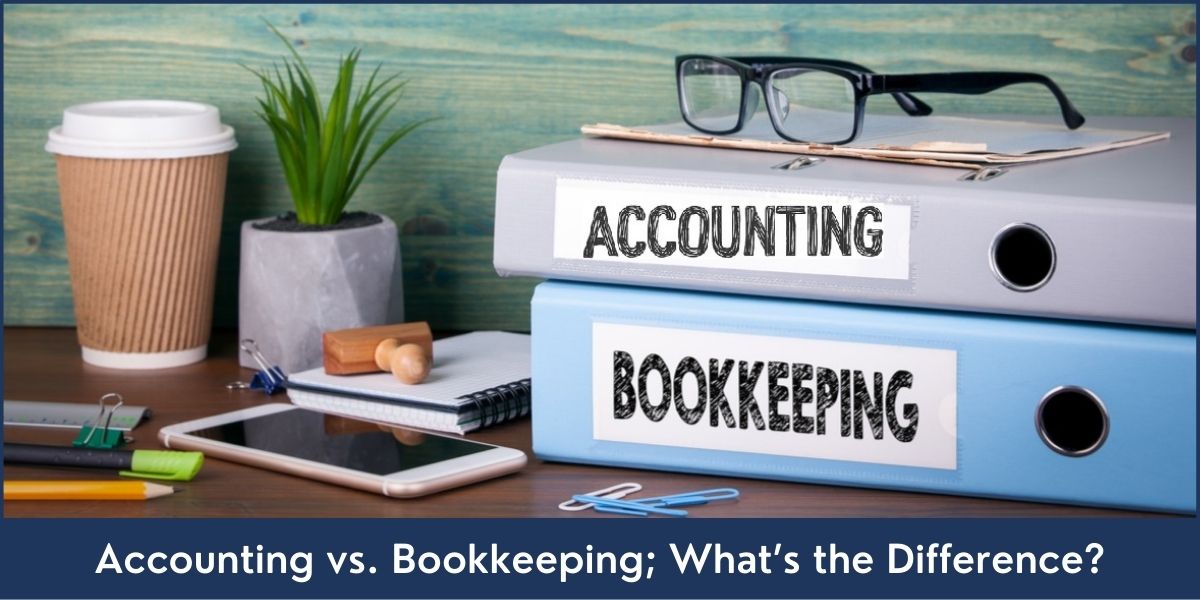An essential component of becoming a competent small business owner is keeping on top of your finances. As such, it is important for your financial information to be up-to-date and reliable so that you have the resources you need to make wise financial decisions and maintain stable cash flow. When the organization expands to involve more clients, suppliers and personnel, maintaining track of your finances on your own will get more challenging.
What is Accounting?
Accounting is the process in which the financials of a firm are documented, compiled, reviewed, consulted and informed on. Bookkeeping is the tracking component of this process in which a database includes all of the company’s financial transactions (consisting of profits and expenses). There are several common activities for accountancy:
- Verifying and analyzing data
- Generating reports, performing audits, and preparing financial reporting records like tax returns, income statements, and balance sheets
- Providing information for forecasts, business trends and opportunities for growth
- Helping the business owner understand the impact of financial decisions
- Adjusting entries
What is Bookkeeping?
Bookkeeping is the method of regularly tracking routine transactions and is a core component of creating a financially efficient organization. Bookkeeping usually involves:
- Recording financial transactions
- Posting debits and credits
- Producing invoices
- Maintaining and balancing subsidiaries, general ledgers, and historical accounts
- Completing payroll
- Maintaining a general ledger is one of the main components of bookkeeping.
Why Accounting and Bookkeeping are Important for a Business?
Bookkeeping and accounting are two roles that for any business enterprise are highly significant. Bookkeeping is responsible for tracking financial transactions in the simplest of words, while accounting is responsible for the analysis, evaluation, review, documentation, and compilation of financial records.
To a lay person, bookkeeping and accounting may seem to be the same discipline. This is because accounting and bookkeeping both work with financial records, involve simple accounting skills, and use financial transactions to identify and produce reports. At the same moment, all of these approaches are inherently distinct and have their own range of benefits.
It’s time to hire assistance when the bookkeeping and accounting responsibilities for your small company are too much to do on your own. But do you need an accountant or a bookkeeper? Often the words are used interchangeably, and with what they do there may be some overlap, but there are considerable distinctions. To determine which is right for you, here’s what you need to know.
Differences between Accounting and Bookkeeping
Bookkeeping vs. accounting is a huge misunderstanding that both are perceived to be one profession. There are several striking variations between the two, even though they seem to be somewhat close. We have mentioned accounting vs. bookkeeping differences here to address this misunderstanding.
Decision Making
Bookkeeping: On the basis of the information provided by bookkeeping, management does not take any decision.
Accounting: Management may take important management decisions based on the evidence presented by the accountants.
Credentials
Bookkeeping: Bookkeepers aren’t required to have any formal education. To be successful in their work, bookkeepers need to be sticklers for accuracy, and knowledgeable about key financial topics
Accounting: In order to apply for an accountant’s title, an applicant must typically have a bachelor’s degree in accounting. Finance degrees are also deemed an appropriate replacement for someone who doesn’t have a formal degree of accounting.
Objective
Bookkeeping: The purpose of bookkeeping is to maintain proper and systematic records of all financial transactions.
Accounting: The purpose of accounting is to gauge the financial condition and to provide the appropriate authority with more details.
Preparation of Financial Statements
Bookkeeping: As part of this process, financial statements are not prepared.
Accounting: During the process of accounting, financial statements are prepared.
Skills Required
Bookkeeping: There are no specific skill sets needed for bookkeeping.
Accounting: Accounting requires special skills due to its analytical and complex nature
Analysis
Bookkeeping: The bookkeeping process does not require any research.
Accounting: Accounting analyzes and interprets the data using bookkeeping information and eventually compiles it into records.
Types
Bookkeeping: There are basically two categories of bookkeeping: single and double-entry bookkeeping.
Accounting: The accounting department prepares the expenditures of a corporation and schedules loan applications for the organization.
The Similarities between Accounting and Bookkeeping
To the untrained eye, bookkeeping and accounting may look to be the same profession. For financial records, both bookkeepers and accountants operate. You must have basic accounting skills to join any occupation. Bookkeepers in smaller firms also perform much of the accounting process than merely tracking purchases. They often use financial transfers to identify and construct reports.
They may not have the requisite experience to perform these activities, but this is possible since most accounting software automates records and memorizes transactions, simplifying the description of transactions. An accountant also documents a company’s financial transactions, performing the bookkeeping part of the accounting process.
The Bottom Line
Organized financial reports and properly balanced bookkeeper-generated finances, combined with the accountant’s smart financial plan and detailed tax reporting, directly lead to the long-term success of a firm. Many company owners learn to handle their finances on their own, whilst others want to appoint a specialist so that they can work on the aspects of their company they truly enjoy. Whatever alternative you select, investing in your business finances, whether it be time or capital, can only help your company expand.
We believe that bookkeeping and accounting is a very important part of every business. Riz & Mona Consultancy has been in this domain for many years now and has served several clients across the United Arab Emirates. Our team comprises of certified, professional accountants who provide the best services in the industry. Our bookkeepers and accountants are updated with the changing market scenarios and are skilled to work on emerging tools and technologies. By outsourcing your requirements to us, you can save your costs and concentrate more on your core competencies.







